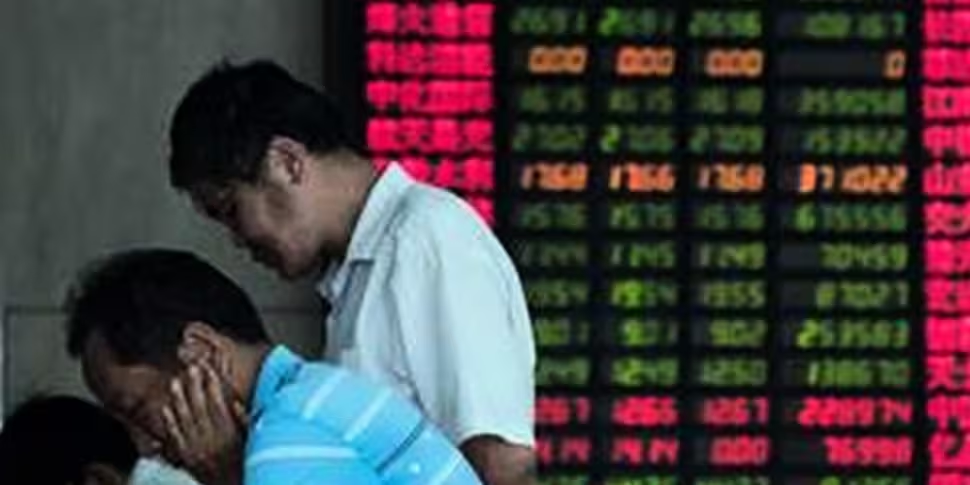Stock markets all over the world plummeted yesterday, after China dropped nearly 9% in what has been described as "Black Monday".
Markets are showing some signs of recovery this morning, after one of the worst days for financial trading since 2008 yesterday.
European markets are slightly up on opening, while there has also been a slight recovery in Japan.
London's top-flight shares rose around 2.5% to pass the 6,000 barrier after losing stg£74bn yesterday.
This was despite Chinese stocks tumbling again this morning - plunging more than 7%, and hitting their lowest level in eight months. Japan's Nikkei fell nearly 4%.
Panic selling intensified after the flagship Shanghai Composite Index crashed through the psychological barrier of 3,000 points.
The blue-chip CSI300 index fell 7.1% to 3,042.93, while the Shanghai Composite Index lost 7.6% to 2,964.97.
There was a recovery in European shares, after they lost around stg£387bn during Monday's panic.
The pan-European FTSEurofirst 300 index, which slumped 5.4% yesterday, rose 1.8%, while the Eurozone's blue-chip Euro STOXX 50 index was up 1.9% in early trading.
Australian PM: Don't hyperventilate these things
The mass sell-off has been triggered by China's slowing economy and the depreciation of the yuan - as well as plunging commodity prices and fears over the timing of the next US interest rate hike.
The People's Bank of China is under pressure to announce a new round of quantitative easing to boost money supply in an economy suffering weaker demand across all sectors.
Beijing has intervened numerous times to try to stop speculators selling vulnerable assets.
The most recent move allowed the state pension fund to invest up to 30% of its assets in Chinese stocks.
However, China's policymakers have largely sat on their hands during the last few days of bloodletting - to the frustration of investors hit by plunging portfolios.
Countries heavily exposed to China's slowing economy have tried to soothe fears about the prospect of a global downturn.
"I think it's important that people don't hyperventilate about these type of things," said Australian Prime Minister Tony Abbott, whose country is China's biggest commodity supplier.
"It is not unusual to see stock market corrections. It is not unusual to see bubbles burst in particular markets and for there to be some flow-on effect in other stock markets, but the fundamentals are sound".
Japanese Finance Minister Taro Aso also said Chinese stocks, which more than doubled in the six months to May, was a bubble now bursting.
"There's also suspicion on whether China's official GDP figures reflect the real state of the economy," he told a news conference in Tokyo.
Justin Urquhart-Stewart is co-founder of Seven Investment Management. He told Newstalk Breakfast these losses will hurt Irish interests.









